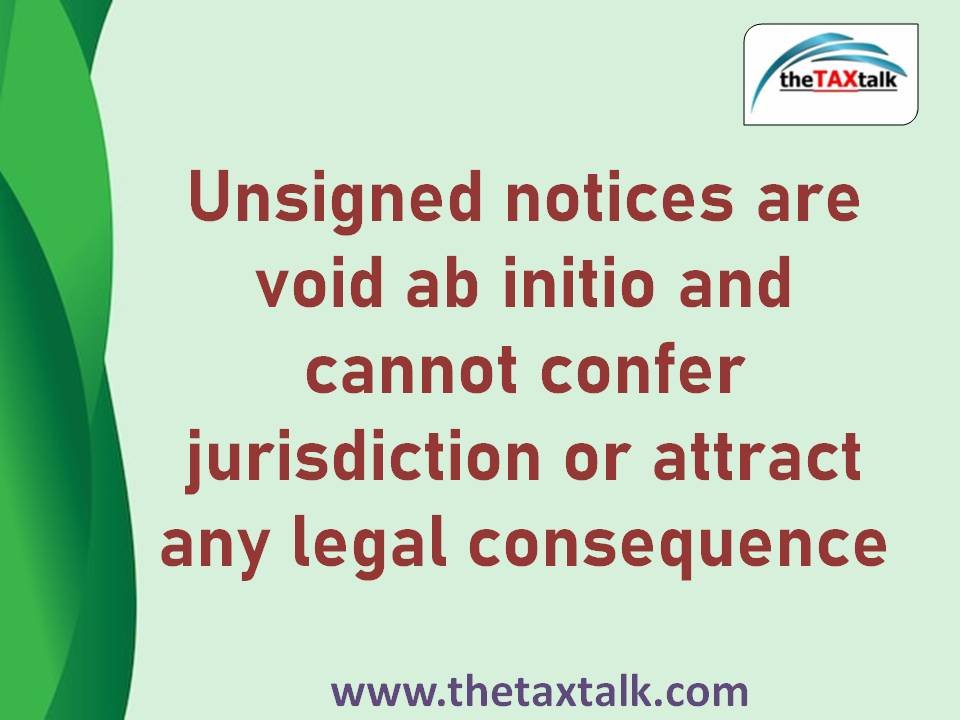![]()
Unsigned notices are void ab initio and cannot confer jurisdiction or attract any legal consequence
Recenlty, ITAT, Delhi Quashes Penalty for Non-Compliance of Invalid Unsigned Notices Under Section 272A(1)(d).
Let us have a Short Overview of the case:
Ramesh Gandhi and Rajesh Gandhi filed appeals against penalty orders passed under Section 272A(1)(d) of the Income Tax Act for the assessment year 2021-22. The penalty of Rs. 70,000 was imposed for alleged non-compliance with seven notices issued during proceedings initiated under Section 153C, following a search on a third party.
The assessees contended that the entire proceedings were illegal as no incriminating material was found for the relevant assessment year during the search. They further argued that the notices issued were neither digitally nor manually signed, making them invalid and without legal force.
The CIT(A) had previously quashed the assessment order on the same grounds, but still confirmed the penalty, stating that the assessees were aware of the proceedings and had not demonstrated any reasonable cause for non-compliance. The Tribunal disagreed with this approach.
It held that unsigned notices are void ab initio and cannot confer jurisdiction or attract any legal consequence. Awareness of proceedings does not cure the defect of unsigned notices, and hence, there was no valid cause to impose a penalty.
Accordingly, the Tribunal allowed both appeals, set aside the orders of the CIT(A), and quashed the penalties imposed under Section 272A(1)(d), concluding that no default could be made out based on invalid notices.
The Copy Of the order is as under:

